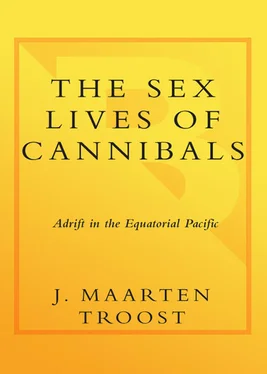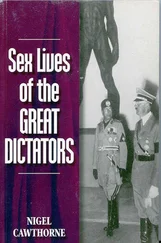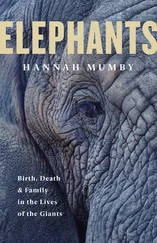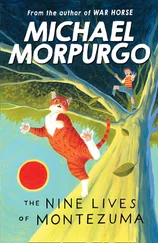J. Maarten Troost - The Sex Lives of Cannibals
Здесь есть возможность читать онлайн «J. Maarten Troost - The Sex Lives of Cannibals» весь текст электронной книги совершенно бесплатно (целиком полную версию без сокращений). В некоторых случаях можно слушать аудио, скачать через торрент в формате fb2 и присутствует краткое содержание. Город: New York, Год выпуска: 2004, ISBN: 2004, Издательство: Broadway Books, Жанр: Биографии и Мемуары, Путешествия и география, Юмористическая проза, на английском языке. Описание произведения, (предисловие) а так же отзывы посетителей доступны на портале библиотеки ЛибКат.
- Название:The Sex Lives of Cannibals
- Автор:
- Издательство:Broadway Books
- Жанр:
- Год:2004
- Город:New York
- ISBN:978-0-7679-1895-4
- Рейтинг книги:5 / 5. Голосов: 1
-
Избранное:Добавить в избранное
- Отзывы:
-
Ваша оценка:
- 100
- 1
- 2
- 3
- 4
- 5
The Sex Lives of Cannibals: краткое содержание, описание и аннотация
Предлагаем к чтению аннотацию, описание, краткое содержание или предисловие (зависит от того, что написал сам автор книги «The Sex Lives of Cannibals»). Если вы не нашли необходимую информацию о книге — напишите в комментариях, мы постараемся отыскать её.
The Sex Lives of Cannibals — читать онлайн бесплатно полную книгу (весь текст) целиком
Ниже представлен текст книги, разбитый по страницам. Система сохранения места последней прочитанной страницы, позволяет с удобством читать онлайн бесплатно книгу «The Sex Lives of Cannibals», без необходимости каждый раз заново искать на чём Вы остановились. Поставьте закладку, и сможете в любой момент перейти на страницу, на которой закончили чтение.
Интервал:
Закладка:
“If we stay any longer,” Sylvia cautioned, “we’ll never be able to go back.”
That was quite likely true. Any longer in Kiribati and the culture shock that was sure to inflict us upon our return would almost certainly prove to be fatal. When we first arrived on Tarawa, we laughed at the stories of the I-Kiribati who had traveled abroad, usually no farther than Fiji. One spent a week in a hotel room after she couldn’t figure out how the elevator worked. Another sustained severe injuries when he tried to navigate an escalator. One man who had traveled to Hawaii returned complaining bitterly of the cold. Now, as I contemplated going back to the distant shores of the United States I found myself a little more simpatico to the plight of islanders cast off in the great big world beyond the reef. Frankly, I was more than a little intimidated myself by the thought of having to weather the peculiarities of the continental world. On Tarawa, I understood life. Food came from the ocean; water from the sky. Coconuts were good for you; stand underneath a coconut tree for too long, however, and you would get conked. Tides determined the day’s activities. Taboo areas were to be avoided. There is always time. It had all become very manageable. I understood this world… well, most of it in any case. To leave the islands was to set forth for the unknown. We would be adrift in the continental world.
Of course that world had air-conditioning and restaurants and bookstores. There were doctors. There was ample electricity. Lots of water, too. And toilets. Lots of toilets. And there were family and friends. No one had come to visit us in Kiribati. Those who had the time lacked the money. And those who had the money lacked the time. There’s the conundrum of American life in a nutshell. During our absence, we missed innumerable weddings, a couple of funerals, and the births of our first nephews and nieces. I thought of the handful of long-term I-Matangs in Kiribati and realized that all of them had, either by choice or default, become severed from their old lives. The isolation in Kiribati is unforgiving.
It was the sudden appearance on Tarawa of one such long-term I-Matang that finally compelled us to make our decision. Half-Dead Fred had arrived. For twenty years he had eked out an existence on Tabiteuea North. I had heard of Half-Dead Fred, of course, just as I had heard of Banana Joe and a few of the other I-Matangs who resided on the outer islands much as the beachcombers who preceded them had. The government of Kiribati, however, had decided to expel the foreigners who had overstayed their visas. Half-Dead Fred had overstayed his by nineteen years. He had arrived those many years ago from the Marshall Islands, where he had been working for a defense contractor. One day, as an Australian might say, he went walkabout and ended up on what is quite likely the most traditional of islands in Kiribati, where he found himself marrying a procession of young brides, who provided him with land where he could cut copra. Life moved along in its usual helter-skelter fashion and suddenly two decades had passed. And after twenty years on the Island of Knives he was told that it was high time for him to return to the United States, which he had not seen since disco was king.
Half-Dead Fred was staying with Mike. Everybody stayed with Mike. If you ever happen to find yourself in the equatorial Pacific needing a place to stay, just head on over to Mike’s house. Bring him something to read, ideally a surfing magazine, and you can stay until you grow old. This seemed to be what Half-Dead Fred would have preferred. The government wanted to expel him to the Marshall Islands, but the Marshall Islands correctly pointed out that Half-Dead Fred was not Marshallese and that according to international law deportees could only be deported to their country of origin. The government of Kiribati, however, was not too keen to shell out the money for a plane ticket to the United States. And there matters remained until, miraculously, Half-Dead Fred’s father was found living in Florida, and he agreed to spring for the airfare.
Air Nauru, as usual, was not flying. It had been impounded in Australia—again—for declining to pay its bills. In the meantime, Half-Dead Fred lingered on at Mike’s house, which is where I found him one afternoon, enraptured by Mike’s computer. Mike, like everyone in Kiribati, was resourceful. One year he might get his hands on a hard drive. Three years later, he’d find a monitor. A year or two later, he’d get word that some westerner was soon to arrive on Tarawa and he’d fire off a telegram listing all the goods he desired that were unavailable on Tarawa, which is to say pretty much everything invented since the wheel. This is how Mike ended up with a video game called Doom, or was it Gloom, or possibly Boom. Anyway, as I walked in I saw Half-Dead Fred hunched in a chair spellbound by the imagery on the computer.
Half-Dead Fred had earned his moniker. He was so wasted in appearance that in comparison a cadaver would seem plump and rosy-cheeked. Tall and gangly with a long salt-and-pepper beard, Half-Dead Fred looked much as I imagined Robinson Crusoe would look had Robinson Crusoe been marooned for a few years longer. He wore a pair of shorts that anywhere else would have long been discarded or put to use as rags. He was shirtless and barefoot. Then again, I too was shirtless and barefoot. So was Mike.
“How long has he been like that?” I whispered to Mike.
“Since the power came back on.”
“That was five hours ago.”
Mike nodded.
“Does he talk?” I asked.
“Oh yes,” Mike said. “When the power’s off he doesn’t stop talking. Of course, what he says doesn’t make any sense. But he does talk.”
We stood watching him. It was strangely riveting. Half-Dead Fred hadn’t even acknowledged the presence of others in the room, so entranced was he with discovering the tools that would allow him to rescue the princess locked in a dungeon by a nefarious wizard in cyberworld. I could think of few things more discombobulating. Twenty years on an island in the world’s most remote island group, where every day was occupied by fulfilling one’s basic subsistence needs and where one had to constantly watch one’s back, because this was the Island of Knives after all, and then to suddenly find oneself deeply ensconced within the alternate reality of a video game.
“Is he mad?” I asked Mike.
“As in crazy? No, I don’t think so. But sane would be a little too strong.”
For some reason I found the sight of Half-Dead Fred staring determinedly at a computer screen more than a trifle disturbing. I wasn’t sure why. I couldn’t quite grasp the source of my discomfort, until I realized that what I was looking at was… me .
This would be me, I realized, if I remained in Kiribati any longer, a dissolute man untethered from his own land, a foreigner who has adapted to the queer realities of island life, but a foreigner always, disconnected from the world beyond the reef, and possibly even from his own mind. Half-Dead Fred was my future.
“Let’s go home,” I said to Sylvia later that evening.
“It’s time, isn’t it,” she said.
“Yes. It’s time to go home.”

TWO MONTHS LATER we found ourselves at Bonriki International Airport, our necks sagging under the weight of a dozen shell necklaces, our heads crowned with garlands, our luggage weighed down with a half-dozen mats. We had spent much of the previous week in the island’s maneabas attending one farewell party after the other. They take goodbyes seriously in Kiribati, quite likely because they tend to be permanent. When people leave the islands, they don’t come back. At the airport, it seemed as if half of Tarawa was on hand to see us off. Of course, every time an airplane arrives on Tarawa half of the island shows up simply for the novelty of it. Nevertheless, we were touched by the number of people on hand. The FSP staff were there, of course, and so too were their families. The tears flowed freely. I bought everyone a round of coconuts.
Читать дальшеИнтервал:
Закладка:
Похожие книги на «The Sex Lives of Cannibals»
Представляем Вашему вниманию похожие книги на «The Sex Lives of Cannibals» списком для выбора. Мы отобрали схожую по названию и смыслу литературу в надежде предоставить читателям больше вариантов отыскать новые, интересные, ещё непрочитанные произведения.
Обсуждение, отзывы о книге «The Sex Lives of Cannibals» и просто собственные мнения читателей. Оставьте ваши комментарии, напишите, что Вы думаете о произведении, его смысле или главных героях. Укажите что конкретно понравилось, а что нет, и почему Вы так считаете.












